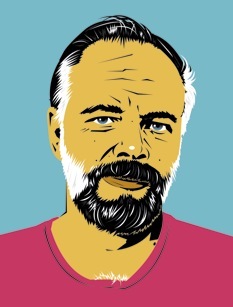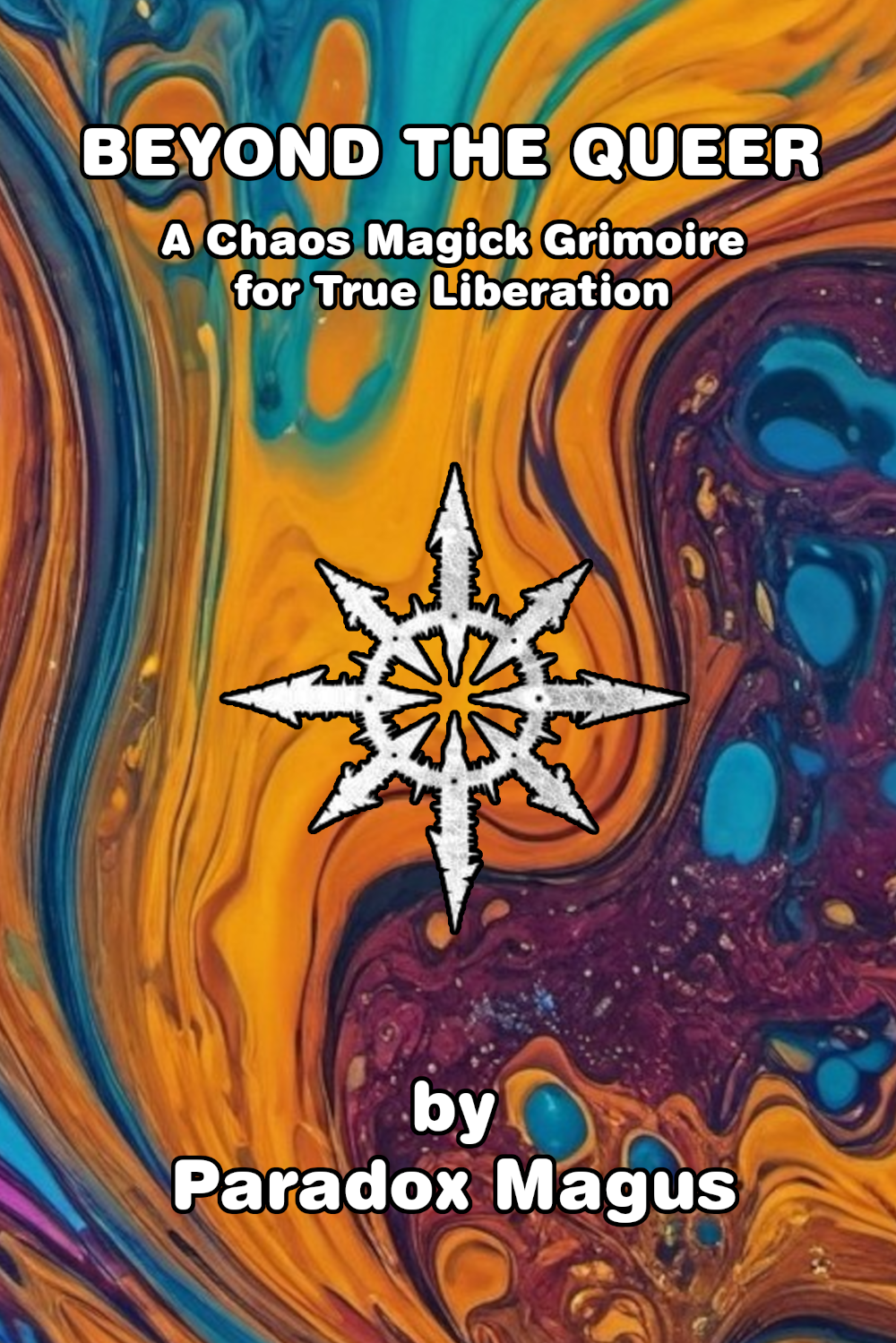“At the center of psychosis I encountered her: beautiful and kind and, most of all, wise, and through that wisdom, accompanying and leading me through the underworld, through the Bardo Thodol journey to rebirth–she, the embodiment of intelligence: Pallos Athena herself. So at the core of a shattered mind and life lies this epicenter–omphalos–of harmonie and calm. I love her, and she is my guide.
-- Philip K.Dick

A lot has been written about what happened to science fiction writer Philip K.Dick on February 3, 1974, but few has achieved any resemblance to the core of what really happened. Mostly its been shallow views from people who barely knew him, or from people who didn’t understand him and thought he was lost, or lunatic, or utterly convinced on the absolute truth of this or that specific explanation he made up about his mystical experiences.
Common knowledge says that Philip had had a wisdom tooth removed, and he needed lots of anaesthetics to endure the pain. A young girl ringed his door. She was bringing his medication, and he became fascinated with her fish pendant. He asked, and she told him it was a symbol from the earliest christians. Then he had a series of visions in which they were both living in the year 70 AD in Rome: there they both were secret christians, hiding from the Empire.
One month later, and for almost a year, Philip K.Dick viewed the world as if under a christian apocalypse appearance, in a way that intertwined both realities. PKD -now again according to common knowledge- ended up gone mad, and died thinking a new savior had been born in India.
However, when you read him directly, things change quite a bit. And you can read him directly, since he wrote a set of ten volumes trying to explain to himself what on earth did really happen when reality broke down and it all started to look a bit too much like his "Ubik" novel. Using the material from these volumes, a shorter edition (around a thousand pages) was published in 2011. Anyone can understand from there way better what really happened to PKD, and that he was much less insane and lost than most people thought and still think.
The first thing that must be made clear is that there is no single explanation from PKD to his mystical experiences. It is usually thought that he strongly believed very specific things like his pseudochristian visions, or that he believed literally all his visions on Rome and the current world and how they were both mixed up, etcetera. And the truth is the absolute opposite: the eight years that follow his mystical experience until he dies in 1982, PKD feverishly charts hypothesis to try to explain himself. It comes to a point in which he almost changes these hypothesis every day, with an inexhaustible imagination that could only belong to one of the most important science-fiction authors in the XX Century. One day he’ll argue that it all came from an alien intelligence which is able to live in four dimensions and who has penetrated our world. The next day he’ll argue that our universe is evolving so that a new intelligence form, one that is not a "god" who creates reality but sort of a "god" which is a consequence from reality’s development. One day he will use some christian dogma and adapt it to what he experienced and digress on how it would relate to the second coming on Christ, then some other day he will use gnosticism or eastern philosophies.
Something that must be highlighted here is that PKD isn’t taking a set of ideas he previously knew and trying to adjust his experience to them, like dogmatized (i.e. faith-religious) people do. He does exactly the opposite. He has had an experience he finds no way to explain, an experience for which he has no single point of reference. So, he uses everything he knows and everything he can find out and tries to extract from those sources anything that might say something about his experience and thus help him explain it. So, for example, the author’s christian background doesn’t condition his reasoning: instead it works like a resource he twists and exploits until he squeezes whatever he wants from it. Very often his interpretation of religious systems becomes so complicated that the results have nothing to do with the original set of ideas. If he needs a theory to tell him about ecstasy, he can pick the opposite extreme from christian suffering and end up concluding that the Dionysian is an initiatory hidden reverse that is the real core lesson of christianism. In a few words, the interesting thing here is that PKD has had such a deep experience that he tries to make the ideas from the world to work for the explaining of his experience, and not the opposite.
And he does not just use ideas from the world: some come from his own literary work, which he will often reinterpret -specially with Ubik- like a sign of everything that happened, as if his works were his own 'precog' intuition on what was to come.

Only briefly in his years after his main mystical experience does Philip come near some sort of "metavision", though he mostly goes on and on sliding once and again through endless hypothesis. And his Exegesis shows that his creative speculation really is extremely rich. It makes sense: you take one of the most imaginative writers from the XX Century, who has even been the source to a dozen of movies, and you put him face to face with an event that undermines his ideas on reality to such an extent he can’t but passionately build endless conjectures, tirelessly, again and again.
Something I found shocking about PKD before I red his Exegesis, was the idea that he took literally the idea that his 1974 AD happened to be mixed up with 70 AD to such an extent he could really believe he was living in the ancient Rome instead of in our time. And all this springs forth from the fact that Philip experienced a huge amount of synchronicities in his life in which the events in his real world were mirrored by the Book of Acts from the Bible. This is something that is often overlooked but which shouldn’t, and when you read the Exegesis you understand it is essential: for Philip K.Dick the really determining thing, the really important thing, the core of it all, are the enormous amount of synchronicities that are overwhelming him. In the high point of the synchronicity flow, they are related with the Book of Acts (things happen to him that mirror what happens in this book), and also one of his books is mirrored, this is "Flow My Tears, the Policeman Said". For Philip, when these synchronicities happen the world becomes alive, and that is where almost all his hypothesis are really centered. This is for him more important than Rome: that he has found some sort of "immanent God", or maybe an extraterrestrial intelligence, or some intradimensional form of life which manifests through synchronicity, or a lot of other ideas he will come up with.
This is the core of his experience, and it is very important in that it brings him closer to other Initiation accounts such like Robert Anton Wilson’s in Cosmic Trigger I. It is also thus that we can understand through PKD experience’s features (going through hell, the meeting with the sublime once he has gone through it, the way the guide he’s found in the underworld stays with him afterwards) that what we are dealing with here is a real initiatory experience.
It is also an experience with a lot of sides to it, and we shouldn’t just dismiss as psychotic digressions his conjectures when he considers for example the ideas about Rome in which he is a hidden christian intertwined with the current real world. There are indeed moments in which he takes such similarity quite literally, but he also perceives his explanations involving Rome being still alive ("the empire never ended") do not literally match and explain out his experience. As he goes on in his Exegesis, he has some brilliant moments in which his literalness dissipates and he considers the idea of a time outside of time, that is to say, of archetypes which belong to a timeless and eternal time which can manifest in different times and places, but which really belong to this archetypal source.
This idea is close to the egyptian concept of the place outside of time where the myths of their deities develop: an eternal place where they tried to return again and again whenever they performed the rituals in which they represented their gods’ legends.

"Valis is a penetration of the physical by spirit". It deals with the world becoming alive, with a very specific disposition of events such that the thing which acted "was pure arrangement, and not the things arranged"; the fact that such arrangement mirrored the Book of Acts is important for PKD, but not the main core from the experience. The key point was reality becoming alive through the way it arranged everything that happened to PKD in order to communicate with him. "Things and processes seemed alive because sentient purpose rather than efficient mechanical law was modulating them"
This "thing that penetrates” into the real is also for PKD God as Void, as the initial unmanifested point from which every narrative derivation on reality emerges, such as he does all the way through his Exegesis.
Sometimes the author even reaches some magical intuition on this new way reality behaves: "All you need to do is totally believe that pattern ‘x’ exists and if ‘x’ is potentially real, it will pass over into the actual. This requires a push-pull relationship between the person and reality. He can’t, say, will a blue phoenix into existence ex nihilo; the person must enter into a progressive intricate dialogue with reality in which there is feedback between both parties.".
Often PKD thinks he has reached some conclusion, or that some new specific offshoot from his ideas or his visions is definitive, but we can always find him casting it aside a few days later. This conclusion is the really definitive one! - he seems to often yell at us, yet soon he finds out he had been too fast in his enthusiasm.
As the life of Philip K.Dick nears its end, we also find an extremely important key in his writings, which explains the meaning of his Exegesis.
Personally, after reading most of his notes I wondered: I understand you want to explain this to yourself, but, don’t you want to come back? Don’t you want to meet again that Thing which triggered the synchronicities, that thing which broke your mind with such an intensity?
But this was exactly the meaning of the Exegesis from Philip K.Dick as he slided again and again over his narratives on the world and what happened to him. At some point the author admits that what he hopes by doing this, by letting his imagination go wild on conjectures, isn’t really explaining anything, but making it happen again: that is to say, he is trying to do deliberately that which he did when he was surrounded by synchronicities, changing again and again his narratives on how the world worked. However, the difference was "then the spark was put there by the messenger, and now I do not have it". That is to say, when he had his experience (his Initiation, his Chapel Perilous) his mind was in a deep state of cognitive terror, and then he started to feverishly try to explain the world, using an endless stream of ideas, travelling through a lot of different worlds inside his mind. Now once his initiatory experience was over, PKD thought that maybe if he did the same thing on purpose, he could reach the same place he reached in the end of his initiation. "I seek to regain; to recapture; the Liberator; I do not seek to gain Gnosis and liberation but to regain it; I had it and lost it!"
As a last note, it is important to clarify PKD’s vision on a new messiah he had in september 1981, regarding someone called Tagore. The vision depicts this person whose body receives stigmata in his body which mirror the wounds we’re inflicting in Nature, and it is a strongly ecological vision (more like PKD’s very own ideas on ecology), but it is important to know that Philip was able not to fall into a literal interpretation, no matter what has been said about him before in superficial analysis. In some passage, PKD ends up explaining that this Tagore symbolizes himself, and that his vision is a warning telling him that he is neglecting his body due to his disproportionate zeal to his writing of the Exegesis. It is a strong warning, Philip says, because it is saying that if he goes on like that he is going to die. This is quite a shocking detail to read from him, considering that he would die barely six months later, in March 1982.

